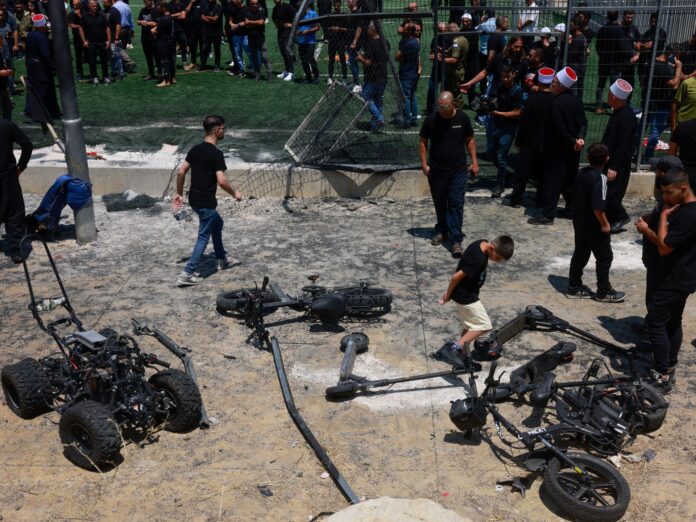Israel is preparing for a major attack on Lebanon following a rocket strike in the Israeli-occupied Golan Heights that resulted in the death of 12 children and young people in Majdal Shams. Analysts believe Israel is unlikely to escalate the conflict into a full-scale war with Hezbollah.
Although Hezbollah has denied responsibility for the attack, Israel has warned that the group will face consequences for crossing a “red line.”
Experts suggest that the rocket strike in Majdal Shams may have been a targeting error by Hezbollah, as the intended target was Israeli positions nearby.
Since the attack, Israel has been using the incident to gain support for a strike on Lebanon, both domestically and internationally.
Drumming up support
Israel has been rallying support for a potential strike on Lebanon, highlighting the attack in the Golan Heights and linking Hezbollah to Iran-backed groups.
Israeli Prime Minister Benjamin Netanyahu delayed the evacuation of sick children from Gaza to the UAE for medical treatment as a response to the attack in Majdal Shams.
While some criticize Israel’s actions as politically motivated, others believe that Israel will try to minimize civilian casualties in a potential strike on Lebanon.
‘Now is not the time’
Israeli army generals are at odds with Netanyahu over the war in Gaza and a potential conflict with Hezbollah in Lebanon.
Most Israelis believe that now is not the time for a major escalation with Hezbollah, given the ongoing challenges in Gaza.
The US has cautioned against a wider conflict, signaling a desire for de-escalation in the region.
Hezbollah’s options
Hezbollah is likely to exercise some restraint in response to a major Israeli strike but may retaliate proportionately. The group’s long-term strategy is tied to Gaza, and it may not agree to a ceasefire with Israel until a settlement is reached there.
Hezbollah may adhere to UN Resolution 1701, which calls for a demilitarized zone between Lebanon and Israel, in a post-conflict scenario.




